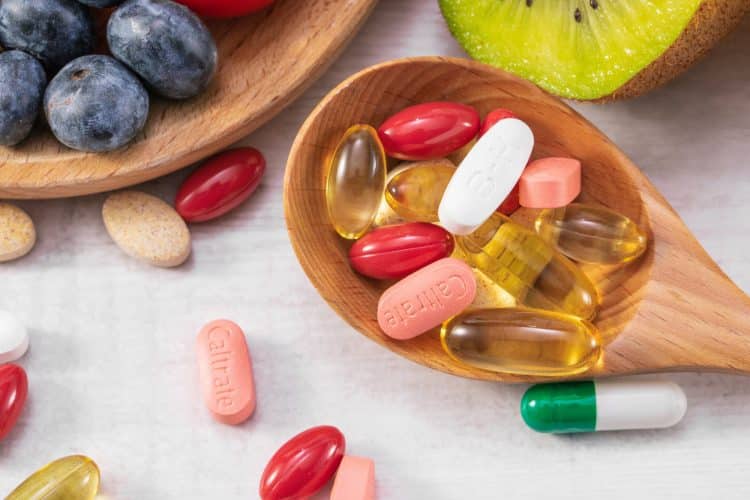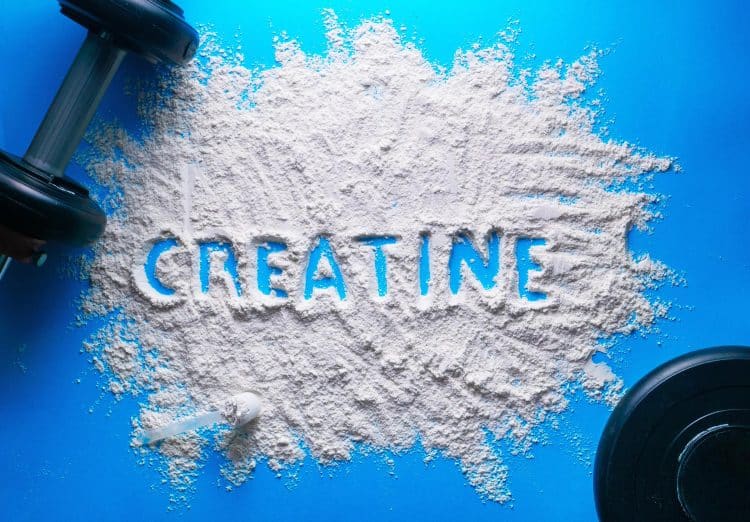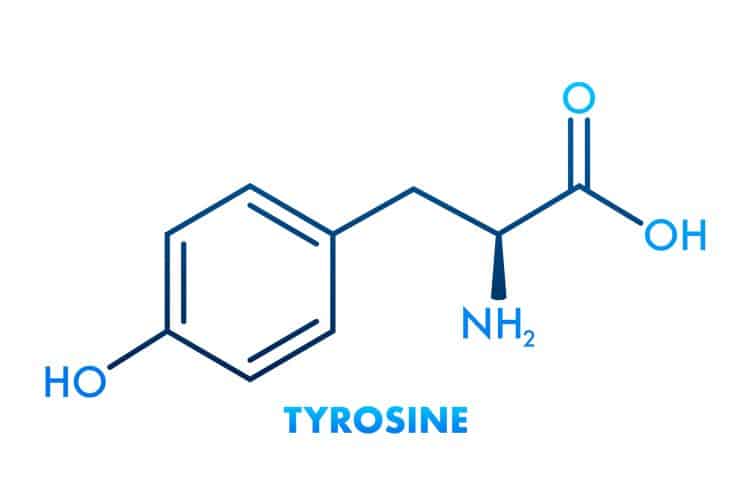Intermittent fasting has caught the imagination of people looking to lose weight. It is a protocol where you alternate between fasting and eating windows to enter a state of ketosis. People across the globe have practiced fasting for thousands of years for religious purposes, but the fasting that we do now is promoted for its various health benefits.
There is a lot of misinformation on the internet regarding what you can and cannot consume during your fasting windows. One of the biggest questions is, does taking vitamins break a fast? We explore the answer to this question in this article.
What is Fasting, and Why do we do it?

Fasting dates back thousands of years. People in ancient Greece practiced fasting to prepare for rituals that were believed to put them in touch with supernatural forces. In the Old Testament, fasting was considered a powerful way of preparing a prophet for revelations. Even Jesus Christ practiced fasting for 40 days out in the desert.
Cut to the present, and fasting is proven to be an effective way of acquiring health benefits. Intermittent fasting, in particular, is seen as the gateway to good health. There are many different forms of intermittent fasting, and let us look at a few popular methods.
The most common form of IF is 16/8 fasting, where you fast for 16 hours daily and eat all your meals in the remaining eight-hour window. Then we have the 5/2 IF method. Here, you will eat normally five days a week and limit your calorie consumption to 500-600 calories on two non-consecutive fasting days. People who are used to these two IF methods can also go ahead and do alternate-day fasting, where they alternate between fasting and eating days.
Time-restricted feeding, or IF, is the most popular fasting type done by people worldwide, and there is a lot of evidence backing its efficacy in improving many health parameters. Let’s take a look at some of them.
Improves Insulin Resistance
Intermittent fasting can help reduce insulin resistance. It lowers blood sugar by 3-6% and reduces fasting insulin by 20-31%. [1]
Reduces Inflammation
IF reduces inflammation in the body. This will, in turn, lead to better management of chronic diseases like high blood sugar and high blood pressure. [2]
Weight Loss
There is a direct association between intermittent fasting and weight loss. IF is effective at helping burn belly fat.

Improves Heart Health
Studies have found that intermittent fasting helps reduce heart disease indicators like LDL cholesterol, blood triglycerides, insulin resistance, and blood sugar. [3]
Might Prevent Cancer
Animal studies have shown that intermittent fasting can help prevent cancer.
Improves Brain Health
Intermittent fasting improves the BDNF hormone in the brain. This induces the growth and formation of new nerve cells, possibly preventing Alzheimer’s and Parkinson’s diseases.
Promotes Autophagy
Intermittent fasting induces autophagy in humans, a process where the body repairs itself at the cellular level. [4]
Can You Take Vitamins While Fasting?
Some of the questions that come up with intermittent fasting are about what you can eat or drink during fasting. While water is recommended and food is a no-no, what about supplements like vitamins? Can you take vitamins during a fast, or should they only be taken during your feeding windows?
There is no straightforward answer to this because there are many variations within and between different supplements. This means some vitamin supplements are safe to consume during fasting windows, while others aren’t.
As a rule of thumb, if a supplement has a caloric value attached to it, it has the potential to break your fast. So such supplements will induce an insulin response. Any supplement with a natural or artificial sweetener will take your body out of ketosis and autophagy, as they trigger insulin release.
You also must consider which vitamins are okay to take with food and which are not. Vitamins A, D, E, and K are fat-soluble vitamins, meaning you should consume them alongside a meal containing fats. This will maximize their absorption. On the other hand, you can consume water-soluble vitamins like B-complex and vitamin C without food.

Best Vitamins and Supplements to Consume While Fasting
Take a look at our list of the best vitamins and supplements to consume while fasting:
1. Electrolytes (Potassium, Magnesium, Sodium)
We need electrolytes like calcium, sodium, magnesium, and potassium for many vital body processes. These include fluid balance, muscle contraction, and nerve conduction. If you exercise in a fasted state, you will lose electrolytes through your sweat, and not stacking up on them can lead to feelings of dizziness and lightheadedness.
Fasting also involves drinking copious amounts of water to ensure hydration, and you must balance that with an adequate intake of minerals. Whether in the form of an unsweetened electrolyte beverage or powdered form, you must ensure that they are included in your regimen while fasting.
Electrolytes do not contain calories; hence, they should be safe to consume during your fast, assuming they are in their purest form and do not contain sweeteners.

2. Water Soluble Vitamins ( B-Complex and Vitamin C)
Largely speaking, nutrients in their pure form will not break your fast or disrupt the ketosis process. B vitamins are water-soluble vitamins that have a major role in metabolism, blood cell formation, energy production, nerve function, cognition, and hormone balance. You should stack up on these while fasting.
Vitamin C is crucial for the proper functioning of the immune system. It also acts as a potent antioxidant, along with vitamin E, to protect body cells from oxidation. Ensure you consume adequate amounts of vitamin C during your fasting windows.
3. Creatine
Creatine has a significant role in energy production and muscle growth, and it is safe to consume during your fast. If you exercise and train while fasting, creatine intake can help increase energy supplies by generating ATP (adenosine triphosphate). Adding creatine to your fasting regimen will help tide your body through maximum physical effort because your body can’t depend on the breakdown of carbs for energy during your fast.
With more creatine in your muscle tissues, you will gain power, speed, strength, and muscle growth. This happens even during calorie restriction and fasting. Creatine is calorie-free and has no components that will trigger an insulin response, meaning it is safe to consume during your fast.

Related: Find Your Daily Creatine Intake
4. Iron
You mainly get iron from food. However, if you are menstruating or have low iron stores, you must include iron supplements during your fast.
Iron and vitamin C are most easily absorbed on an empty stomach. Hence, you can take it during fasting or before a meal. However, some may experience cramps, constipation, and digestive problems. If this is you, take your iron supplement with the first meal of the day during your feeding window.
5. L-Tyrosine
L-tyrosine is an excellent supplement if you are looking to avoid the fogginess associated with fasting. It is an amino acid that your brain converts into three vital neurotransmitters that have a critical role in mood and stress response. These are dopamine, associated with the reward center in the brain; norepinephrine, which helps the body respond to stress; and epinephrine, which plays a significant role in focus and motivation.
Take L-tyrosine supplements during your fasting windows to boost your overall mood.

6. Prebiotics and Probiotics
These are responsible for maintaining your gut health, and we give them a thumbs up to take during your fasting windows. Some of these bacterial strains are meant to be taken on an empty stomach when the acid levels in your gut are low; hence, they will not interfere with the probiotic and prebiotic functions. However, check the label on the bottle to be sure.
Supplements To Avoid During A Fast
Some supplements we advise against consuming during the fasting window are listed below.
1. Omega-3 (Fish Oil, Algae Oil, Cod Liver Oil)
Fish oils consist of total fat, so keep an eye on how much you are consuming. If you take more than one tablespoon (15g), you are venturing into risky territory, and it may break your fast.
2. Multivitamins
Multivitamins may not have a caloric value, but many of their constituent nutrients are most efficiently absorbed with food. Hence, while you can consume multivitamins while fasting, you will experience better nutrient absorption if you take them with food.
3. Protein Powders
During fasting, you should avoid protein powders. They contain calories that will break your fast. You also need to avoid supplements that contain collagen peptides.
4. Branch Chain Amino Acids
Many people tend to take branched-chain amino acids (BCAA’s) when they train during fasting. However, technically speaking, amino acids will induce an insulin response that will stop the autophagy process and break your fast.
FAQs
Can I take my vitamins during fasting?
You can take regular vitamin pills and capsules when fasting because they will not likely affect your insulin levels. However, vitamins and supplements available as gummies, chewable tablets, or liquids are sweetened and will trigger an insulin response. Hence, you should consume the latter during your feeding windows.
Can I take multivitamins while fasting?
Multivitamin tablets do not contain any sugar or added calories. Hence, you can consume them safely during your fasting window without the fear of breaking your fast. However, multivitamins are best taken with food.
Do vitamins break ketosis?
Minerals and vitamins are inherently pure compounds. Hence, they should not interfere with the ketosis process.
Can I take vitamins on an empty stomach?
Taking vitamins on an empty stomach is not bad for you. However, ensure that you take them as per the instructions on the label, or consult a doctor before taking them if you have any doubts.
Does lemon water break a fast?
Lemon water does not break a fast. It does not contain sugar or calories and doesn’t raise insulin levels in your body.
Conclusion
You must understand fasting dynamics and your body’s metabolism to determine what works best for you when taking vitamins during fasting. Some specific vitamins, like gummy vitamins, will break your fast; others are best taken with food.
However, there are a few water-soluble vitamins that you can consume without breaking your fast. You must note that having the right balance of vitamins and minerals is essential to aiding nutrient replenishment during fasting. Many people have hunger cravings, nausea, and fatigue when they fast or take certain multivitamins. Hence, it is essential to consult a doctor if you are experiencing any health issues when looking for supplements while fasting.
References
- Lee, S. H., Kim, S. J., Kim, D. J., Kim, J. H., Kim, S. Y., Moon, H. S., … & Kim, S. W. (2021). A comparison of clinical outcomes between in-person and video-based informed consent for spinal anesthesia: A randomized controlled noninferiority trial. Journal of Clinical Anesthesia, 71, 110284.
- Alam, I., Gul, R., Chong, J., Ying Tan, C. T., Chin, H. X., Wong, G., Doggui, R., & Larbi, A. (2019, August 19). Recurrent circadian fasting (RCF) improves blood pressure, biomarkers of cardiometabolic risk, and regulates inflammation in men. PubMed Central (PMC).
- Mani, K., Javaheri, A., & Diwan, A. (2018, September 14). Lysosomes Mediate Benefits of Intermittent Fasting in Cardiometabolic Disease: The Janitor is the Undercover Boss. PubMed Central (PMC).
- Alirezaei, M., Kemball, C. C., Flynn, C. T., Wood, M. R., Whitton, J. L., & Kiosses, W. B. (2010, August 14). Short-term fasting induces profound neuronal autophagy. PubMed Central (PMC).


